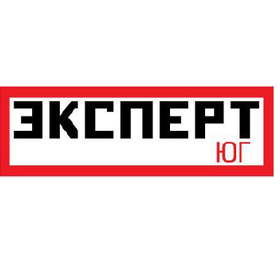 The CEO of National Law Company Yury Mirzoev gave an interview to "Expert-South" and shared opinion about resolution disputes of business` prepresentatives with tax authorities today.
The CEO of National Law Company Yury Mirzoev gave an interview to "Expert-South" and shared opinion about resolution disputes of business` prepresentatives with tax authorities today.
According to the tradition, “Expert South” selects the five most popular persons of the outgoing year. However, if we were asked to name the most important hero of the year, they would certainly be a taxman. In the situation of dramatic fall in oil prices, the state concentrated its activity in the tax branch, mobilizing not only the profile service, but also representatives of the regional government. In the statements of many governors the topic of tax collection in 2015 was almost the main one.
For businessmen this tax splash obviously meant strengthening of the control from the state. The reports on various tax additional charges occupy an important place in the news line. Here are just a few recent examples. In September, investigating authorities opened criminal cases against the heads of seven companies from Kabardino-Balkaria Republic engaged in the production of alcohol. They were suspected of evading taxes in a large amount - for a total of about 2.2 billion rubles. At the same time in Krasnodar, a scandal broke out around one of the largest local developers - the GC "Europeya", linked with additional land taxation of one of its affiliated companies in the amount of 46.6 million rubles. In Chechnya in October, the head of one of the largest enterprises of the agroindustrial complex in the republic, the Argun sugar plant, went to court for evading taxes for 5.5 million rubles. Here you can safely put "etc.," because similar stories in 2015 have become a norm for business - although the state in the name of its first persons has repeatedly stated: no new taxes will be imposed.
For businessmen, who are convinced of the inconsistency of tax claims, the only way to challenge these claims is to apply to the arbitration court. Tax disputes are now really one of the most important segments of the legal services market, says Yury Mirzoev, CEO of the National Law Company “Mitra”. However, according with him, it becomes more difficult for businesses to go into litigation with tax officials. Especially hard is now for large businesses, but small businesses that have learned to optimize taxes using known simple schemes, according with Yury Mirzoev, also don`t expect an easy life.
- How can You note the main modern trends of stiffening of tax control?
The main trend is stiffening of tax administration, charging additional taxes according with results of in-site inspections and in-office audits. But, the courts made decisions in favor of state. According with our practice, some years ago 70% of such disputes were solved in favor of taxpayers, but now 84% of tax disputes are solved in favor of state, taking into account that tax authorities charge additional tax more. Put crudely, the state wants to take from business and citizens everything, legal and illegal taxes.
-What do you mean in the last situation?
- First of all, different borderline cases. Not so long ago, for example, the tax authorities of the Belgorod region began to charge individuals with personal income tax on the basis of their large expenses (in fact, the tax on imputed income). A similar norm exists in a number of countries, but in Russia they were canceled in 2004, and according with the current Russian legislation, only government officials are directly responsible for reporting revenue sources when making major purchases on the basis of the Law on Public Service. Other citizens are not required to provide documents confirming the origin of their funds. However, the tax authorities actually tried to change the tax on income in a transparent manner to the expense tax. We were one of the first lawyers who paid attention to this, and not so long ago the Supreme Court recognized that such actions are illegal. Thank God that the Federal Tax Service of Russia also responded in a timely manner to the situation and gave the necessary explanations.
- Is there a difference between actions of Federal Tax Services in different regions or situation is the same?
Earlier, the most progressive region in terms of compliance with tax legislation was the North-West Federal District, where tax officials tried to comply with all the basic principles of the Tax Code of the Russian Federation - legal certainty, interpretation of unavoidable doubts in favor of taxpayers, and so on. But now the situation for taxpayers everywhere is bad, there is not much difference between the regions, no one can boast of the fact that courts still take the majority of decisions in favor of taxpayers.
-What are the most popular bases for charging additional tax?
The most popular situation is a refusal of VAT deductions, as well as a denial of income tax expenses. In aggregate, this gives most part of the additional charges. But here is just a certain regional specificity is present. For example, in Moscow, a very common practice of the last time for tax collectors is to make additional payments for all deductions to foreign "parent companies", such as royalties, dividends and so on. In the south of Russia there is no large foreign business, most companies are, as they say, closer to the land, and ways of avoiding taxes here are more primitive - using one-day firms, overstating costs, understating income and so on.
In what cases can taxpayer today win a court from the tax authorities?
First of all, these are complex border cases related to different interpretations of the law, when there is a divergence in interpretation, for example, between the tax authorities, the Ministry of Finance and the taxpayer. But if you try to pursue in court, for example, deals with "one-day firms", the result of the court will be decisive - in favor of the tax authorities.
What are the average amounts of additional charges from the tax authorities in the south of Russia?
According with our practice, for individual entrepreneurs we are talking about amounts of the order of one or two million rubles, for small and medium-sized enterprises - three to four million rubles. But the main burden of additional charges falls on a large business, because if a small or medium-sized enterprise needs to somehow withdraw this money, then a large enterprise will not go anywhere, it is much easier to collect additional charges. In this case, just a large business basically pays all taxes, and tax evasion is more typical for small and medium-sized businesses. And in the case of big business, we are talking about dozens, or even hundreds of millions of rubles.
Can you give any examples of certain companies?
Not so long ago we participated in a tax dispute on the additional charge of taxes to a large enterprise "Dagestan Energy Retail Company" in the amount of about 1 billion rubles. Five years ago, a dispute of such case would have been unambiguously resolved in favor of the taxpayer, but now everything has changed fundamentally. It was possible to resolve the case in favor of the applicant with great difficulty and only due to higher judicial instances, which could cancel the erroneous decision of the Arbitration Court of Dagestan Republic.
What`s the situation with additional taxation on different sectors? In our ranking of the largest companies of the SFD and the NCFD, we see quite a few business segments that show a minimum profit, for example, many trading companies, but something is not audible, that they are credited with serious amounts.
Taking into account our practice, the biggest additional charges now occur in two sectors - the fuel and energy complex and construction. But if some industries don`t use increased attention of the tax authorities, then, I think, their turn will come soon, because in other industries there will simply be nothing more to be confiscated. For example, schemes of tax evasion, which are often used by many trading companies, will not be easy to disclose.
When did state clamp down on in the tax branch -after joining of Crimea, imposing sanctions, last year devaluation of the rouble or another situation?
For the first time we felt it before the Olympics in Sochi, and at the same time there was a process of abolition of the Supreme Arbitration Court, completed in August 2014, after which everything turned upside down. Still, Supreme Arbitration Court sought to support the taxpayers with their decisions, and here the factors of the Crimea, sanctions, devaluations, falling oil prices, etc., also added up.
Theoretically, tightening the tax policy, the state gives business to understand that it is striving for it, business, greater transparency. Do you think the transparency of business has grown in the past year or two?
I repeat: in Russia there are a lot of companies that pay all legal taxes, and since 2006 such companies have become more and more, because entrepreneurs saw: in Russia you can conduct a completely legal, "white" business. Yes, taxes in Russia according with the world standards are not the highest, you can collect more from the business, but here there is a question of the rules of the game. If a businessman who has paid all the taxes that are prescribed by law comes to the tax authorities and makes additional payments, then his natural reaction is to go to court. He hires lawyers, spends a lot of money on their services, incurs legal costs - and eventually loses, although he is absolutely convinced that he has already paid everything that is due by law. This is now a typical plot, and it, unfortunately, only increases distrust of the state - especially since along with the legal business, we have enough entrepreneurs and enterprises that do not pay taxes and are accustomed to solving the corresponding issues in a different way. As a result, there is a situation that clearly does not help to build the right tax system: those who pay taxes, have to pay even more, and who does not pay, will not do it. And if an honest businessman can`t find justice in court, it automatically pushes him to the path of "gray" schemes - he must somehow survive. Therefore, it is not necessary to say that manipulation of tax administration helps to increase business transparency.
What do you think about the feedback of business on this situation?
- I don`t know of any businessman who is ready to fight openly with it. Business wants only one thing: that it is not "nightmarish", so that there are clear rules of the game. For example, if the state wants to collect more taxes, then let it better raise them officially, and not engage in additional charges while officials say that there will be no increase in taxes. For several years, entrepreneurs were not afraid of the Federal Tax Service because they knew that the court would most often be on their side. Now, the tax service becomes a cerber, and the result of this, if nothing changes, will be a deterioration in the investment climate in the next few years.
Materials were taken from "Expert South"


